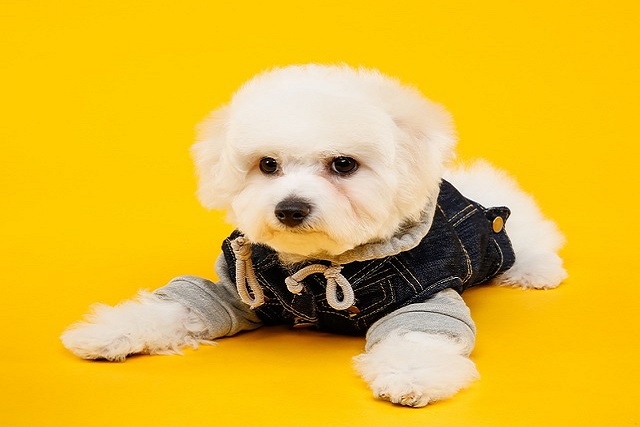
What is glaucoma in a dog?
You might notice your dog squinting more at mealtime or avoiding bright sunlight—these small changes could be early signs of a serious eye condition.
Picture this: you're enjoying a sunny afternoon stroll with your new furry best friend through the local park. Suddenly, Fido dives nose-first into a fascinating (but suspicious) patch of undergrowth, or maybe rolls gleefully where another dog just was. That sinking feeling hits – could he pick up something nasty? Keeping your dog parasite-free is crucial for their health and your peace of mind, especially in the US where ticks, fleas, and worms are common uninvited guests. These pests aren't just itchy annoyances; they can transmit serious diseases like Lyme (from ticks) or cause severe anemia (from hookworms), understanding their lifecycles helps us break the chain.
The cornerstone of defense is consistent, veterinarian-recommended parasite prevention. This isn't a "maybe" thing – it's essential preventative healthcare. For most dogs in the US, this means monthly oral medications or topical treatments that target fleas and ticks year-round (yes, even in winter in many regions!). Think of it like locking your doors at night – non-negotiable protection. Simultaneously, regular canine deworming is vital. Your vet will tailor a schedule, often every 3-6 months or using monthly preventatives that include intestinal parasite control, based on local risks and your dog's lifestyle. Never skip these doses! Complement this with environmental control. Wash bedding weekly in hot water, vacuum carpets frequently (especially where your dog rests), and consider pet-safe yard treatments if fleas are a known issue in your neighborhood. If you live in an apartment, be extra vigilant in shared hallways or elevators – parasites can hitch a ride.

Daily habits matter hugely. Become a pro at "poop patrol" – always pick up your dog's waste immediately with biodegradable bags. This isn't just good manners (and often legally required in public spaces across the US, with fines for non-compliance!), it's critical hygiene preventing worm egg contamination. After walks, especially in wooded or grassy areas, do a thorough tick check. Run your hands over your dog's body, paying close attention to ears, armpits, groin, and between toes. Finding and removing a tick within 24-48 hours drastically reduces disease risk. Discourage scavenging or drinking from puddles during walks using positive reinforcement training (like a firm "leave it" followed by a high-value treat) – never punishment. This builds trust and keeps them safer from ingesting parasites. Remember, keeping your dog's core vaccinations up-to-date, like rabies (mandatory in most states), is part of their overall defense shield too.
Living in tighter urban spaces? Apartment dwellers need extra diligence. Shared dog runs or potty areas are hotspots; ensure your preventatives are current and wipe paws after using communal spaces. Be mindful of leash laws and always yield space to others – good community etiquette reduces stress for everyone. If you spot potential parasite symptoms like excessive scratching, visible bugs, scooting, vomiting, diarrhea, or lethargy, call your vet immediately – don't wait. Combining proactive medication, smart daily routines, and responsible ownership is the absolute best recipe for a happy, healthy, parasite-free pup. Stick to your vet's plan, stay observant, and enjoy all those wonderful, worry-free adventures together!

You might notice your dog squinting more at mealtime or avoiding bright sunlight—these small changes could be early signs of a serious eye condition.

Let’s set the scene: It’s a sweltering Phoenix afternoon—105°F outside—and you rushed your 2-year-old Lab mix, Cooper, on a quick walk to “get it over with.”

Let’s get real: You’re in your Miami apartment, watching your 3-year-old Corgi, Loki, struggle to climb the stairs to your second-floor unit.

Many dog owners brush off occasional scratching as just “dog behavior,” but persistent itching often signals something more—like a food allergy.

You might first notice your dog scratching more than usual—chewing at their paws until the fur looks thin, or rubbing their face against the couch nonstop.

Let’s be real: You’re standing in your Chicago apartment, watching your 3-year-old Beagle, Max, huff and puff just to climb onto the couch.